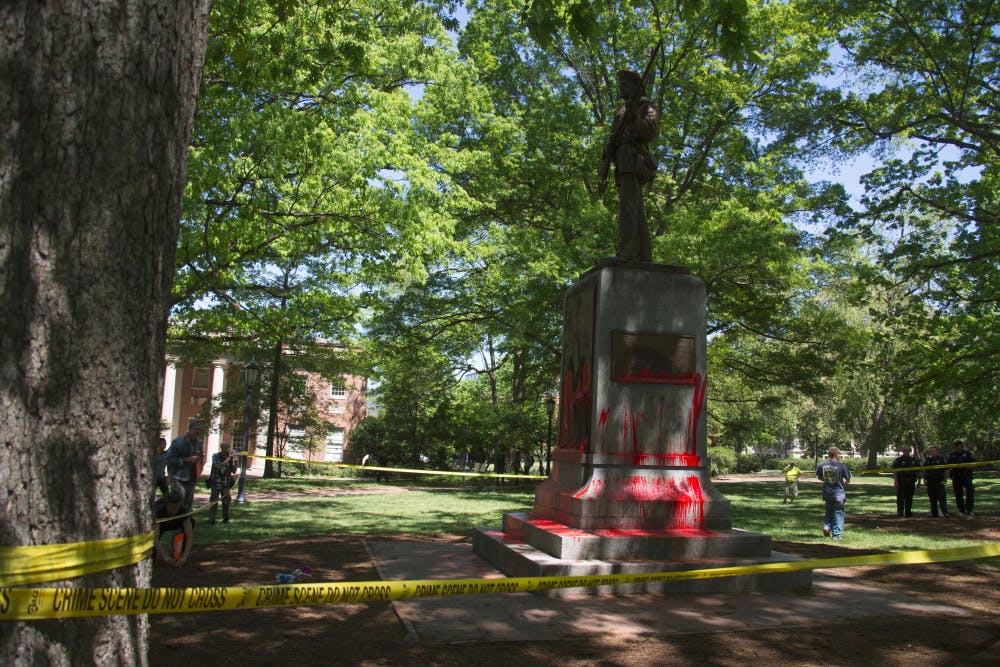A North Carolina Superior Court judge has dismissed a portion of the DTH Media Corporation's complaint against the UNC System and Board of Governors in a virtual hearing Thursday. The complaint accused the groups of violating North Carolina Open Meetings Law to negotiate its $2.5 million settlement with the North Carolina Sons of Confederate Veterans in November 2019.
Judge Carl Fox denied the University's motion to dismiss the DTH’s complaint regarding the payment of $74,999 to the SCV last year, which was separate from the $2.5 million settlement, and said this case will be allowed to continue.
The UNC System asked the court to dismiss the complaint after Judge Allan Baddour vacated the $2.5 million settlement between the UNC System and the SCV in February. After a group of UNC students and faculty filed a motion to intervene with the settlement, Baddour ruled the SCV — which had received both possession of the Silent Sam monument and a $2.5 million trust meant for its care and preservation — didn't have standing in the case.
Lawyers for the UNC System argued at Thursday's hearing that since the settlement had been vacated, the DTH’s complaint that the deal was made without public knowledge is now moot.
The North Carolina Judicial Branch legal glossary states that ruling a case as “moot” means that it is "not subject to a court ruling because the controversy has not actually arisen, or has ended.“
"There is no further relief to be issued by this court in this case because the actions that they have prayed for have already been effectuated in Judge Baddour’s case,” Philip Isley, representing the UNC System, said.
Hugh Stevens, who represents the DTH Media Corp., argued that even though the settlement had been vacated, the DTH sought a declaration from the court defining the System’s violation in order to publicly acknowledge that the deals were made in secret.
"I think if this court or any court told the Board of Governors, 'You misbehaved, you didn't follow the law … You shut the people out of their business and you shouldn't have done that, and that was wrong, and I'm declaring as a matter of law that it was wrong' — that is a powerful message," Stevens said.
Judge Fox ruled that it was not the court’s place to merely advise the System of wrongdoings, considering that the situation had already been remedied by the dismissal of the $2.5 million settlement.



